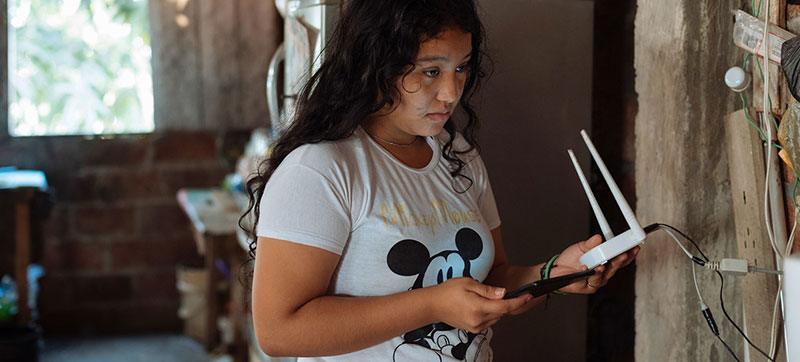 School Children
School Children COVID-19: Students face $17 trillion loss in lifetime earnings
New York: School closures during the COVID-19 pandemic could result in a staggering $17 trillion in lost lifetime earnings for today’s students, according to a UN-backed report issued on Monday.
The projection is among the findings of The State of the Global Education Crisis: A Path to Recovery, published by the World Bank, the UN Educational, Cultural and Scientific Organization (UNESCO) and the UN Children’s Fund (UNICEF).
$17 trillion.
That's how much this generation of students risks losing in lifetime earnings due to COVID-19 school closures.
The figure is calculated in present value, representing roughly 14 per cent of current Gross Domestic Product (GDP).
It far exceeds the $10 trillion estimates from a year ago, revealing that the impact is more severe than previously thought.
Loss ‘morally unacceptable’
The pandemic brought education systems across the world to a halt, said Jaime Saavedra, World Bank Global Director for Education. More than 20 months later, millions of children remain shut out of school, while others may never return.
Furthermore, the report shows that in low and middle-income countries, the share of children living in “learning poverty” could jump from 53 per cent to 70 per cent.
“The loss of learning that many children are experiencing is morally unacceptable,” said Mr. Saavedra.
“And the potential increase of ‘learning poverty’ might have a devastating impact on future productivity, earnings, and well-being for this generation of children and youth, their families, and the world’s economies.”
The report reveals that real data is now corroborating simulations estimating that school closures resulted in significant learning losses.
Education inequities worsen
Regional evidence from countries such as Brazil, Pakistan, India, South Africa and Mexico detail substantial losses in maths and reading skills, sometimes roughly proportional to the length of school closures.
There was also diversity across countries, and by subject, students’ socioeconomic status, gender, and grade level.
However, evidence from across the world suggests the pandemic has exacerbated inequities in education, with children from low-income households, those with disabilities, as well as girls, less likely to access remote learning.
Additionally, younger students had less access to remote learning and were more affected by learning loss than older counterparts, especially pre-school age children.
Furthermore, the most marginalized or vulnerable students were disproportionately impacted, among other findings.
Reopening, a priority
Robert Jenkins, UNICEF Director of Education, called for reopening schools, and keeping them open, to “stem the scars on this generation”, while warning of the risks of inaction.
“The COVID-19 pandemic shut down schools across the world, disrupting education for 1.6 billion students at its peak, and exacerbated the gender divide,” he said.
“In some countries, we’re seeing greater learning losses among girls and an increase in their risk of facing child labor, gender-based violence, early marriage, and pregnancy.”
With less than three per cent of government stimulus packages allocated to education, the report underlines the need for greater funding.
Reopening schools must remain a top and urgent priority globally, while countries should implement Learning Recovery Programmes to ensure students in this generation will attain at least the same competencies as their predecessors.
At the same time, techniques like targeted instruction can support learning recovery, meaning teachers can align instruction to the learning levels of students.
Resilient education systems
Stefania Giannini, UNESCO Assistant Director-General for Education, underscored the need for government action.
“With government leadership and support from the international community, there is a great deal that can be done to make systems more equitable, efficient, and resilient, capitalizing on lessons learned throughout the pandemic and on increasing investments,” she said, while stressing the need to prioritize children and youth.
To build more resilient education systems for the long-term, the report calls for countries to consider taking steps such as investing in the enabling environment to unlock the potential of digital learning opportunities for all students.
The role of parents, families, and communities in children’s learning must also be reinforced.
At the same time, teachers should have support and access to high-quality professional development opportunities, while the share of education should be increased in the national budget allocation of stimulus packages.
Support Our Journalism
We cannot do without you.. your contribution supports unbiased journalism
IBNS is not driven by any ism- not wokeism, not racism, not skewed secularism, not hyper right-wing or left liberal ideals, nor by any hardline religious beliefs or hyper nationalism. We want to serve you good old objective news, as they are. We do not judge or preach. We let people decide for themselves. We only try to present factual and well-sourced news.







